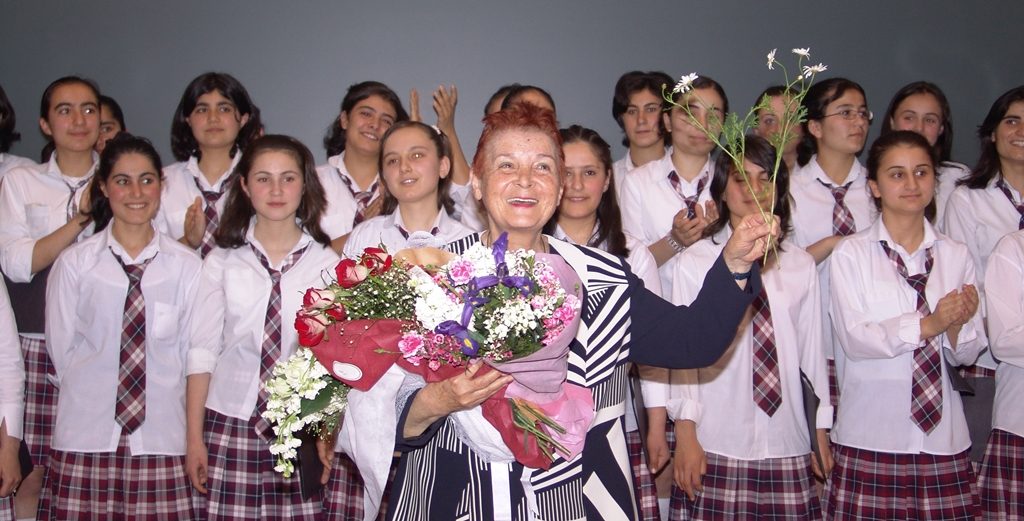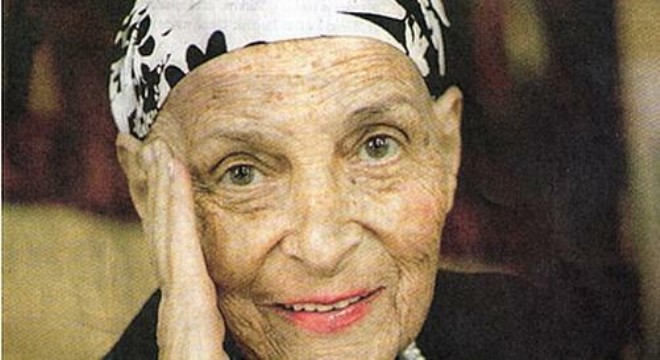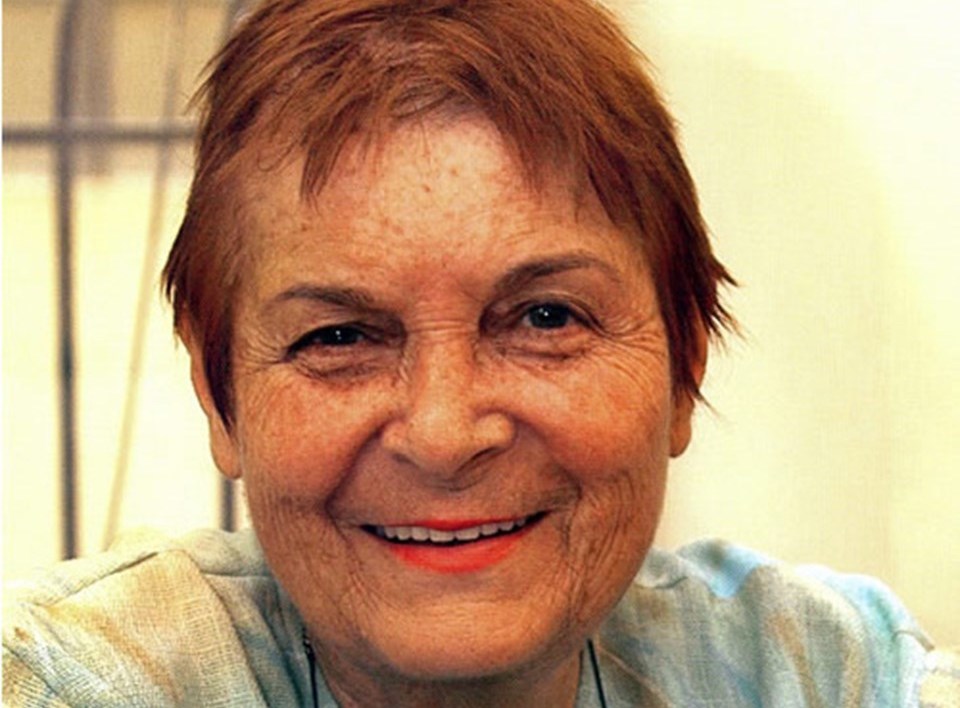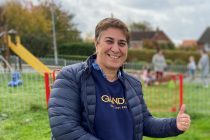One of Turkey’s most exceptional women passed away ten years ago today, 18 May 2009. Türkan Saylan was a doctor, educator and civil society activist, made famous first for her fight to eradicate leprosy and later for establishing Çağdaş Yaşamı Destekleme Derneği, ÇYDD (Association for the Support of Contemporary Living) to provide education for girls across Turkey and promote gender equality. Her incredible legacy continues to live on.
Saylan was born in Istanbul on 13 December 1935, the daughter of a Turkish father, Fasih Galip, and a Swiss mother, Lili Mina Raiman who converted to Islam and changed her name to Leyla after she was married.
After finishing Kandilli Girls High School, Saylan went on to study medicine at the University of Istanbul. During this period, she suffered from spinal tuberculosis, and was forced to spend a year lying face down in bed as she recovered. She graduated from medical school in 1963, still wearing the steel corset for her spine that she had worn for two years.
Saylan specialised in diseases of the skin and became one of the first female dermatologists in Turkey. Her professional life started at the University of Istanbul School of Medicine in 1968. Four years later she was made Associate Professor, before becoming a Professor in 1977.
She began working with leprosy in 1976, and founded the Turkish Leprosy Relief Association and in 1981 the Istanbul Leprosy Hospital, working voluntarily as director at the hospital until she retired in 2002. She spearheaded both medical research and humanitarian projects in leprosy, and went on to work as a consultant in leprosy for the World Health Organisation (WHO).

Under her direction, the Istanbul Leprosy Hospital expanded to include an outpatient clinic, specialised eye care, a shoe workshop, surgery, physiotherapy and dental units serving both inpatients and outpatients. In 1986, she was awarded the International Gandhi Award for her work with leprosy.
Alongside her leprosy work, Saylan became a strong advocate for secularism and women’s rights in Turkey. In 1989, together with Turkish psychiatrist and professor Aysel Ekşi she established ÇYDD, a charitable foundation devoted to promoting women’s rights, education, and the modernisation principles of Mustafa Kemal Atatürk.
Since its formation 30 years ago, ÇYDD has awarded scholarships to nearly 74,000 girls so they can attend high school, as well as 34,000 university scholarships. They have furnished over 700 preschool classrooms and built 565 playgrounds, two high schools, six nursery schools, 32 village schools and 36 dormitories.

The ÇYDD has also invested in education and cultural centres in Turkey, while sending books and other supplies to more than 500 schools. Through its various campaigns, it is estimated that the charity has collected and distributed some 5 million books.
Saylan remained the chairperson and public face of ÇYDD until her death in 2009.
Her professional and voluntary work resulted in multiple awards during her life, from Woman of the Year (1990) to the Vehbi Koç Award in 2009 for her work in education.
The year after her death, ÇYDD launched a new annual awards scheme in her name to recognise those excellent in arts and science.
Saylan was a prolific writer and her bibliography includes well over 400 articles and books, including studies and research reports published in medical journals, articles on political and social topics published in newspapers, a textbook on dermato-venereology, and two memoirs.
Tens of thousands of people turned out for Türkan Saylan’s funeral in Istanbul on 19 May 2009
At Kız [Horse Girl] is a memoir of her childhood, while Güneş Umuttan Şimdi Doğar [The Sun Rises Now Out of Hope] details her life’s work in activism and the challenges she faced in her private life.
A vocal and influential champion of Atatürk, secularism and gender equality marked Saylan out as a target for those wishing to crush these sentiments in Turkey. Her home was raided a few weeks before she died under the now discredited Ergenokon investigation, where military officers, journalists and opposition lawmakers, and other members of society were arrested and accused of being part of a clandestine secularist group plotting to overthrow the Turkish Islamic Justice and Development Party (AKP) government.
She condemned the police’s actions and publicly stated her opposition to a coup, saying “We want democracy and contemporary values to rule. Therefore, we are ready to fight for this cause as long as it takes.”
As part of a book she had been working on before she died, Dr. Saylan wrote an open letter to all girls and young women in Turkey, which was read at her funeral: “You, my dear daughter,” it said, “stop asking yourself, ‘Why am I born a girl?’ and aim at becoming the best you can be.”

Diagnosed with breast cancer, Saylan finally succumbed to the disease after a 19-year fight. She passed away on 18 May 2009 at the age of 73 at Istanbul University Çapa Medical Faculty Hospital, where she was being treated.
She is survived by two sons, Cinar Orge, a physician, and Caglayan Orge, a graphic designer, and four grandchildren.




